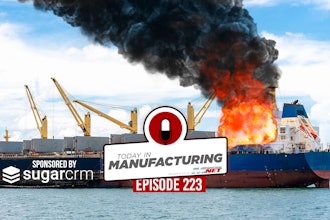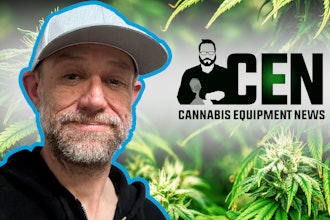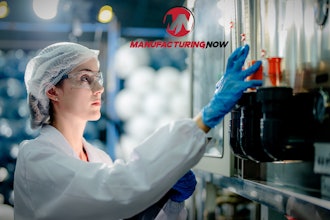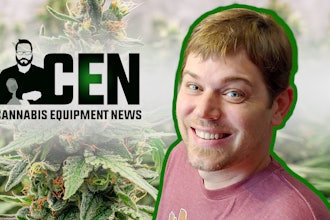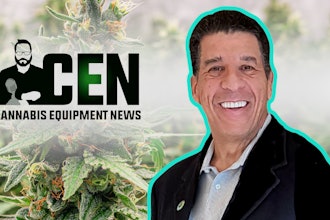Editor's Note: Download the audio version below and click here to subscribe to our newsletter.
This week, Kim Eastman, vice president of manufacturing with Jushi Holdings, joins the Cannabis Equipment News podcast to discuss the challenges and successes in running a multi-state operator like a small, almost craft operation.
Kim Eastman didn't have a longstanding dream or passion for the cannabis industry; she just fell into it. She studied chemistry in college and wound up in the analytical chemistry field, running a lab that tested dietary supplements. She was in the industry for ten years, testing each new herb of the month, when she became burned out and left the field.
After spending a year at home with two small kids, she became eager to reenter the workforce and started looking for something new. She found a position as a lab director in cannabis. She agreed to an interview, almost on a lark, with The Clinic in Colorado. Surprisingly, she landed the job. At first, she had some concerns familiar to anyone who has joined the industry. Is this real? Am I going to be paid in cash? Will we be raided? The fears subsided, and she held the position for ten years. The role led to a new opportunity as the vice president of manufacturing at multi-state operator Jushi Holdings.
Eastman is an extraction innovation expert who has seen new extraction tech come onto the market that deviates from traditional hydrocarbon, CO2 and ethanol extraction. Solventless is at the forefront, with one primary benefit being easier integration from a facility design perspective — no need for an explosion-proof room. In addition, the market is maturing, becoming more savvy regarding cannabis products and how they are made.
However, from any multi-state operator standpoint, it isn't easy to jump into a new extraction method, particularly an entirely new technology, because most companies don't have time to play around with new products. The unknowns come with many inherent risks, but Eastman keeps an eye on the industry to see how new equipment could play into Jushi's future.
Jushi prides itself on high-quality products, which lend to challenges with scaling. The company still operates like a small, almost craft operation using a variety of genetics to come up with small batch products to give consumers and patients variety. Eastman doesn't want to lose the craft operation mentality and works hard to maintain it.
Still, the cannabis industry is fast-moving, with a hot new product each month. From gummies to vape pens to rosin to rosin vape pens, it sometimes looks like cannabis manufacturers are taking lessons from the dietary supplement industry's herb-of-the-month mentality. Jushi has a technical team in place to determine the viability of products and listens to the market to help lay the path forward.
Jushi operates in California, Illinois, Massachusetts, Ohio, Pennsylvania and Virginia. As new product lines debut, the frequency and location of the launches remain strategic. A new product might not be available in every state. Eastman says it's difficult because managers in every state want access to every product. Sometimes, that simply isn't feasible. However, if it's a product that Jushi intends to bring to market, the company will find a way to roll it out across the board quickly.
Product development has to be fast because operators need to be fast to succeed in this industry. Still, consistency is a challenge for multi-state operators that want to launch a product line consistent across each location. Each location uses different input materials with different genetics in various regulatory limits. The company also can't buy in bulk, a traditional cost savings for large companies.
Operating in different states under various regulations is challenging. Rules are different, and expertise and talent availability varies. Eastman equates it to managing six businesses simultaneously. She tries to standardize as much as possible, like using the same equipment, but staffing is difficult, particularly on the east coast and in new markets. Upskilling new talent with 10 to 15 years of operational information takes time, but Jushi has built training plans and leans on in-house expertise to make it happen.
Jushi also doesn't operate a central R&D facility. Instead, the company's R&D projects and initiatives are run at individual facilities. As a result, process and development improvements happen on a local level, and it takes a lot of trust.
Eastman says Jushi is committed to innovation and is constantly looking for better equipment to improve efficiency and reduce loss.
Cannabis is an extremely fast pace industry that never slows down and never stops when it comes to new product development. To keep pace, Eastman stresses the importance of staying organized, working together and shifting priorities to make it happen. She says to surround yourself with a good team, train them and trust them to do a good job using the skills you've provided. The industry won't change. Speed to market won't change. It's on the company to keep up.
Please make sure to like, subscribe and share the podcast. You could also help us out by giving the podcast a positive review. Finally, to email the podcast or suggest a potential guest, you can reach David Mantey at David @cannabisequipmentnews.com.









